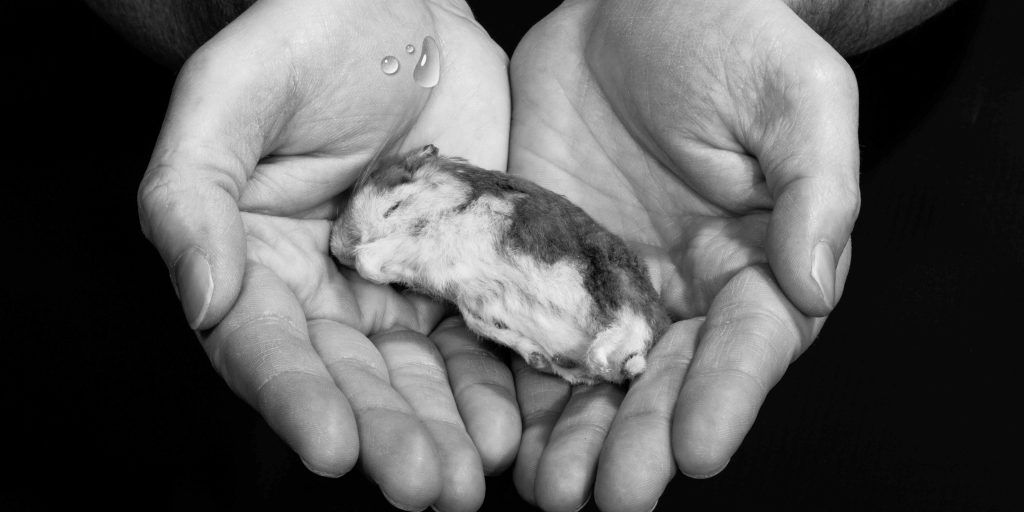The grieving process after the loss of a pet
Grieving is a highly individual experience. Some people find grief following the loss of a pet comes in stages, where they experience different feelings such as denial, anger, guilt, depression, and eventually acceptance and resolution. Others find that their grief is more cyclical, coming in waves, or a series of highs and lows. The lows are likely to be deeper and longer at the beginning and then gradually become shorter and less intense as time goes by. Still, even years after a loss, a sight, a sound, or a special anniversary can spark memories that trigger a strong sense of grief.
The grieving process happens only gradually. It can’t be forced or hurried—and there is no “normal” timetable for grieving. Some people start to feel better in weeks or months. For others, the grieving process is measured in years. Whatever your grief experience, it’s important to be patient with yourself and allow the process to naturally unfold.
Feeling sad, shocked, or lonely is a normal reaction to the loss of a beloved pet. Exhibiting these feelings doesn’t mean you are weak or your feelings are somehow misplaced. It just means that you’re mourning the loss of an animal you loved, so you shouldn’t feel ashamed.
Trying to ignore your pain or keep it from surfacing will only make it worse in the long run. For real healing, it is necessary to face your grief and actively deal with it. By expressing your grief, you’ll likely need less time to heal than if you withhold or “bottle up” your feelings. Write about your feelings and talk about them with others who are sympathetic to your loss.
Heading 2 – Coping with the grief of pet loss
Sorrow and grief are normal and natural responses to death. Like grief for our friends and loved ones, grief for our animal companions can only be dealt with overtime, but there are healthy ways to cope with the pain. Here are some suggestions:
Don’t let anyone tell you how to feel, and don’t tell yourself how to feel either. Your grief is your own, and no one else can tell you when it’s time to “move on” or “get over it.” Let yourself feel whatever you feel without embarrassment or judgment. It’s okay to be angry, to cry or not to cry. It’s also okay to laugh, to find moments of joy, and to let go when you’re ready.
Reach out to others who have lost pets. Check out online message boards, pet loss hotlines, and pet loss support groups—see the Resources section below for details. If your own friends and family members are not sympathetic about pet loss, find someone who is. Often, another person who has also experienced the loss of a beloved pet may better understand what you’re going through.
Look after yourself. The stress of losing a pet can quickly deplete your energy and emotional reserves. Looking after your physical and emotional needs will help you get through this difficult time. Spend time face to face with people who care about you, eat a healthy diet, get plenty of sleep, and exercise regularly to release endorphins and help boost your mood.
If you have other pets, try to maintain your normal routine. Surviving pets can also experience loss when a pet dies, or they may become distressed by your sorrow. Maintaining their daily routines, or even increasing exercise and play times, will not only benefit the surviving pets but can also help to elevate your mood and outlook, too.
Seek professional help if you need it. If your grief is persistent and interferes with your ability to function, your doctor or a mental health professional can evaluate you for depression.
Every life deserves to be remembered and celebrated uniquely. It is all the more critical, comforting and gratifying that we give a respectful and dignified adieu when it comes to our pets. PawSpace helps you navigate your dog funeral or pet funeral without stressing out about the details.


